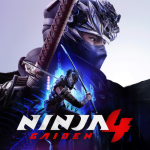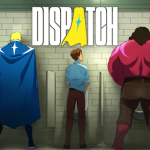When Hackers Disrupt the Game: The Apex Legends NA Finals Fiasco

The competitive world of e-sports was stunned when two professional players became the unexpected targets of hackers during a pivotal tournament for Apex Legends. Noyan "Genburten" Ozkose of DarkZero and Phillip "ImperialHal" Dosen of TSM were involuntarily turned into examples of how digital security can compromise even the highest levels of gaming. Mid-match, both players found their systems manipulated, granting them illicit abilities normally associated with cheaters, not professional gamers. These unwanted 'upgrades' threw the entire Apex Legends Global Series North America finals into disarray, ultimately leading to a suspension of the event.
Witnessing a tournament player suddenly obtain an unfair advantage through external interference was perplexing and alarming to both participants and viewers alike. The chaos unfurled live, as a Twitch clip showed Genburten's shock upon finding himself able to see through walls. Moments later, ImperialHal had an aimbot thrust upon him and was heard professing his inability to play normally. This twin set of incidents revealed a significant chink in the game's armor, illuminating vulnerabilities that extend beyond mere game mechanics to the very infrastructure that supports competitive play.
In response to these brazen acts of tampering, the Anti-Cheat Police Department—a group of volunteers dedicated to ensuring fair play in the gaming community—issued a PSA highlighting the seriousness of the situation. They identified an exploit that could originate from within Apex Legends or its anti-cheat software, prompting a stark warning to the wider gaming populace to refrain from playing not just Apex Legends but any game protected by Electronic Arts' established security systems. The stakes were clear: all players, but especially those involved in the tournament, were urged to take immediate action to secure their accounts and personal information.
The ramifications of the incident were manifold, affecting individual players and the integrity of the competitive scene. Participants were advised to beef up their digital security, change passwords, enable multi-factor authentication, and even undertake the drastic measure of a clean operating system reinstall. Past being a mere inconvenience, this disruption laid bare the potential for cyber threats to impede professional gaming events, raising questions about the security measures in place and their effectiveness in today's increasingly connected and vulnerable digital landscapes.
In conclusion, this unsettling turn of events has pressed pause on the Apex Legends Global Series North America finals, with the organizers citing the need to uphold the competitive integrity of the series. It is a stark reminder that as competitive gaming continues to grow in popularity and stakes, so too does the need for iron-clad digital security. The e-sports community awaits further details, hoping for swift justice and a renewed focus on protective measures that will shield the world of competitive gaming from such egregious breaches in the future.
















